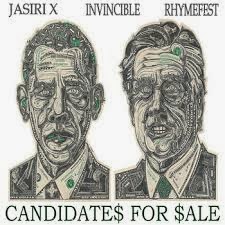The winter Olympics always end up surrounded by the controversies at least what is observed during the last decade and Sochi2014 is no different.
Salt Lake City Olympics 2002:
In 1998, several IOC members were forced to resign after it was uncovered that they had accepted bribes from Salt Lake Bid Committee co-heads Tom Welch and Dave Johnson in return for voting for Salt Lake City to hold the Games. In response to the scandal and a financial shortfall for the games, Mitt Romney, then CEO of the private equity firm Bain Capital (and future presidential candidate), was hired as the new President and CEO of the Salt Lake Organizing Committee, leaving him and IOC President Dr. Jacques Rogge to contend with the public outcry and financial mess.Romney, Kem C. Gardner, a Utah commercial real estate developer, and Don Stirling, the Olympics' local marketing chief, raised "millions of dollars from Mormon families with pioneer roots: the Eccles family, whose forebears were important industrialists and bankers" to help rescue the games, according to a later report.An additional $410 million was received from the federal government.
The 2002 games were the first Winter Olympics held after formation of the World Anti-Doping Agency; as a result there were a large number of athletes disqualified following the new testing.
Athletes in cross-country skiing were disqualified for various reasons, including doping by two Russians and one Spaniard, leading Russia to file protests and threaten to withdraw from competition.
In the first week of the Games, a controversy in the pairs' figure skating competition culminated in the French judge's scores being thrown out and the Canadian team of Jamie Salé and David Pelletier being awarded a second gold medal. Allegations of bribery were leveled against many ice-skating judges, leading to the arrest of known criminal Alimzhan Tokhtakhounov in Italy (at the request of the United States). He was released by the Italian officials.
Turin 2006:
The Games had issues with costs covering and national attendance. Due to a lack of funding by the Italian Government, Toroc risked dissolution. American skier Bode Miller was also a focus of controversy in his home country and Canada, where his actions were not considered in line with the Olympic spirit.
The metro was finally opened to the public on February 4, 2006, after a 45-day delay. It operated on a shorter stretch (XVIII Dicembre (Porta Susa) to Fermi – 11 stations) than originally forecast; it finally reached the main railway station (Porta Nuova) and the rest of the city centre more than one year after the Games, in October 2007. For the duration of the Games, a single ticket (5 euros) covered use of both the metro and other means of public transportation for a whole day. However, during the Games, metro service stopped at 6:00 pm, making it impractical for spectators of evening events. Furthermore, the metro did not reach any of the Olympic venues. On the other hand, the bus service was heavily improved for the Games, although still inadequate at night hours.
Italian police raided the Austrian athletes' quarter in search of evidence of doping. The raid was conducted due to suspicions over the presence of biathlon coach Walter Mayer, who had been banned from all Olympic events up to and including the Vancouver Olympic Games in 2010 due to previous doping convictions. Around the time of the raid Mayer and two Austrian biathletes, Wolfgang Perner and Wolfgang Rottmann, tried to escape and fled back to Austria. Later, the Austrian ski federation president said that the two athletes told him they "may have used illegal methods". After some days the results of the tests of all 10 tested Austrian athletes were presented and were all negative.
Vancouver 2010:
The opening ceremony was stalled while organizers recovered from mechanical problems which prevented the pillars forming the cauldron for the torch lighting from completely rising out of the stadium floor as planned. However this was soon fixed as seen in the Closing Ceremony, where they made a joke out of it. An Engineer Mime climbed out of the stage as if he had just fixed it and he pretended to pull it up. Speed skater Catriona Le May Doan, who was supposed to have lit the 4th pillar, came out from the floor to finally get the chance to light it.
Some time after winning their gold medal in the finals of the women's hockey tournament, a 2-0 victory over the United States on February 25, 2010, several members of the Canadian women's hockey team celebrated on the stadium ice while drinking beer and champagne, and smoking cigars. Unbeknownst to the players they were photographed and their celebration was criticized in the media,the reason being that smoking and drinking in public was unbecoming of Olympic athletes, especially while in uniform and in their playing venue. Hockey Canada issued an apology, although other members of the Olympic community dismissed concerns over the event.The IOC considered looking into the incident.Canadian hockey captain Hayley Wickenheiser said a double standard was being applied, and that a male athlete would not have been judged so harshly, as was the case with skeleton gold medalist Jon Montgomery and his post race beer consumption.
It would be interesting to see that how Putin administration would handle the Sochi problems and would they able to hold a controversy free winter Olympics this time?
But the political controversies have already begin due to the consistent widespread boycott of the world leaders to enter Russian soil.
It would be interesting to see that how Putin administration would handle the Sochi problems and would they able to hold a controversy free winter Olympics this time?
But the political controversies have already begin due to the consistent widespread boycott of the world leaders to enter Russian soil.










.jpg)

0 comments:
Post a Comment